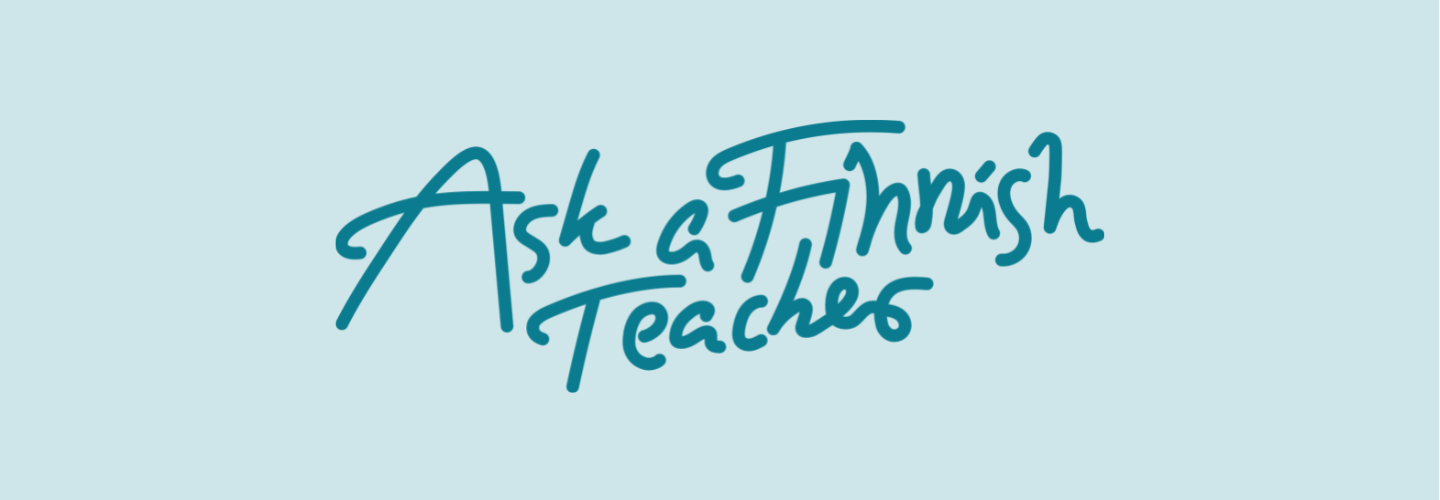|
Finnish classes have a tendency of being very grammar heavy. This is in part because of how the language itself works, but it's also just plain tradition. Grammar rules have played a central part in language learning at least for hundreds, maybe even thousands of years, going at least back to how Greek and Latin have been studied throughout the centuries. Grammar can mean many things, from a set of rules to follow to theories about language to being synonymous with the structure of language itself, encompassing every aspect of language use: phonetics, vocabulary, genres, contexts and so on. For the purposes of this post, I'll be using the word grammar to mean the set of rules that you learn and practice when you're first learning a language - in linguistic terms, phonology, morphology and syntax. For instance, the word type rules in my previous post and exercises to practice them would be an example of what I mean by grammar. One of the reasons why Finnish is difficult is that there's often a lot of emphasis placed on getting the forms right right away, by us teachers but also by students. I help moderate a language learning group on Facebook (Learn Finnish Language - Opiskelemme suomea, you're very welcome to join us), and a lot of the discussion centers around people asking if the sentences they have written are correct. This is of course a good thing - it's fine to want to get your grammar right from the beginning, but a lot of the time it can become an obstacle on the way to actually learning to understand, speak and write Finnish. The problem is that with a language like Finnish, where there's a lot of morphology (word forms, cases, tenses...) to learn, there's nearly always a little something wrong with even the most meticulously crafted sentences. That, in turn, makes you lose confidence in yourself and your ability to learn, and learning Finnish starts to feel like an impossible task. The truth is, usually you can get the message through without getting everything right. I if writes like zis, you understandings I, yes? The same of course goes for Finnish. When I'm studying a new language, I find myself terrified that if learn the forms wrong in the first place, I'll never ever get them right. However, that is not at all what I've seen as a teacher, or what the research tells me. It's absolutely possible to learn the language wrong and to then have a hard time unlearning the errors and relearning the correct forms, but in my experience this is actually quite rare. I've never seen it be a problem for the students who keep an open mind and try their best keep learning even after the initial stage. What is true for 99,99 % of my students is that as they get more experience with the language, the correct forms also emerge, bit by bit. Then there's the 0,01 % who can read a grammar from cover to cover, then read a dictionary from cover to cover and start speaking more or less perfectly. Yes, those people exist (though the numbers are off the top of my head). As a talented language learner I have them to thank for knowing what it's like to be the slowest learner in class, which I think has made me a much better teacher. As a teacher, I'm often torn on whether to correct my students' mistakes or not. On one hand, speaking and writing the language and making yourself understood with it is what counts. On the other, I feel it's my job to help my students eventually get the forms right. What do you think, how much correction is the right amount? Here's what Helsinki looked like this morning. Stadi <3
Photo: Lena Salmen arkisto 30/3/2018 03:25:03
Thank you for this post! I find it very valuable and agree with you totally. It also takes a lot of courage from a teacher to NOT correct all the mistakes and to guide students to explore the language instead of giving them a pile of rules. The history of language learning is heavy. If you ask students what would you like to learn, they answer grammar and vocabulary. Mastering some form may give false feeling of mastering the language but in my experience using of the language is really the one that gives you confidence and guides you to learning.
Mari Nikonen
30/3/2018 13:06:14
Thank you for your kind words Raisa! And thank you for sharing the quote, it's excellent and really something to live by.
Emmanuel
30/3/2018 08:15:40
Thank you so much for bringing out your time to help alot of us students. I most say it very difficult for the teachers and also the students because first, finnish is not there mother tongue, and also most of the students have been living all there lives in a country with diffirent grammer and idelogy and difficult for the teachers too because you really need to patience and friendly to help and carry everyone alone.. and for how correction need to be given, i also think it all depends on the teacher.. a good teacher is one who love the job not just the money that comes with it.. there should be room for correction in some point, but is best to help the Student to love the language and teacher the students in there on pace a level they can understand and remain focus.... and once again thank so much for help us in this group may God continue to strengthen and empower you
Mari Nikonen
30/3/2018 13:07:34
Thank you Emmanuel!
You make a point about learning something wrong and then unlearning it. Here is the thing I strongly believe in. I have studied some Finnish, I speak fluent English, and my native language is a Slavic language, belonging to one of the largest groups. 31/3/2018 09:46:43
Thank you for you insightful comment Meri! Comments are closed.
|
Archives
June 2024
|
Ask a Finnish Teacher / Toiminimi Mari NikonenBUSINESS ID (Y-Tunnus) 2930787-4 VAT NUMBER FI29307874 Kaupintie 11 B 00440 Helsinki If you'd like to send me something in the mail, please email me for my postal address. [email protected] +358 40 554 29 55 Tietosuojaseloste - Privacy policy |


 RSS Feed
RSS Feed